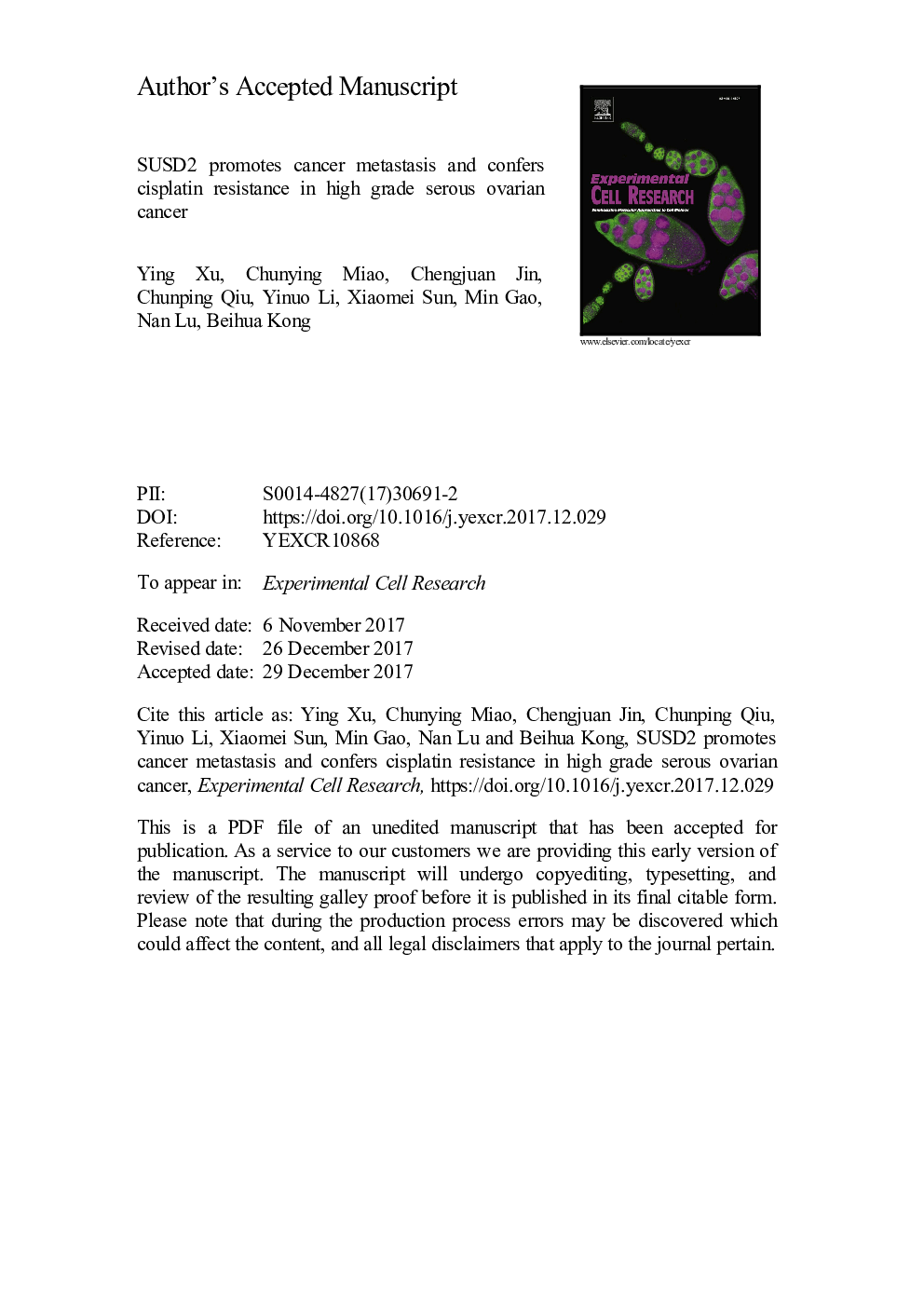| Article ID | Journal | Published Year | Pages | File Type |
|---|---|---|---|---|
| 8451264 | Experimental Cell Research | 2018 | 40 Pages |
Abstract
The activation of Notch3 is associated with potential progression of ovarian cancer, tumor invasion, metastasis and chemoresistance, which account for poor prognosis of high grade serous ovarian cancer (HGSOC). However, the underlying mechanisms of Notch3 are not yet very clear. Here we show that SUSD2 is one of Notch3-regulating genes and the elevated protein expression of SUSD2 in HGSOC. We also found that its high expression level was significantly correlated with worse overall survival, early recurrence and lymph nodes metastasis. Moreover, overexpression of SUSD2 in ovarian cancer cells promoted epithelial-mesenchymal transition (EMT) and the metastatic capacity of malignant cells. In contrast, silencing SUSD2 in aggressive ovarian cancer cells inhibited these processes both in vitro and in vivo. Mechanistically, we found SUSD2 promoted EMT through regulating the expression of EpCAM and EpCAM silencing reversed SUSD2-induced E-cadherin reduction and cells migration. Further experiments indicated a role of SUSD2 in conferring cisplatin resistance in ovarian cancer probably through enhancing autophagy in vitro. Collectively, these findings shed a new insight into the role of Notch3 downstream gene SUSD2 and provided a new therapeutic target for HGSOC.
Keywords
Related Topics
Life Sciences
Biochemistry, Genetics and Molecular Biology
Cancer Research
Authors
Ying Xu, Chunying Miao, Chengjuan Jin, Chunping Qiu, Yinuo Li, Xiaomei Sun, Min Gao, Nan Lu, Beihua Kong,
